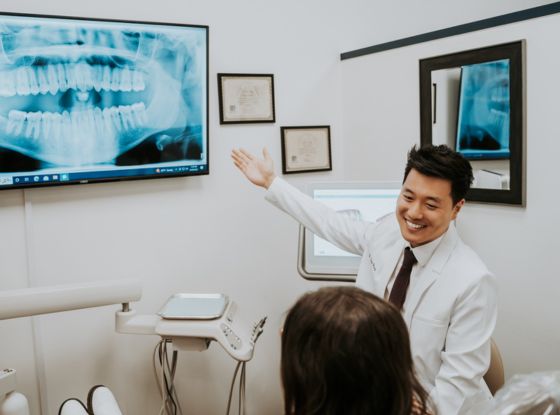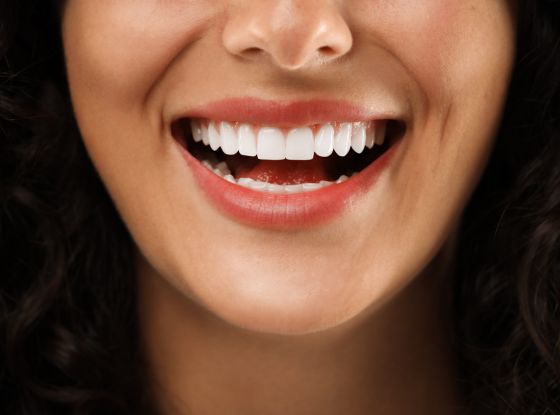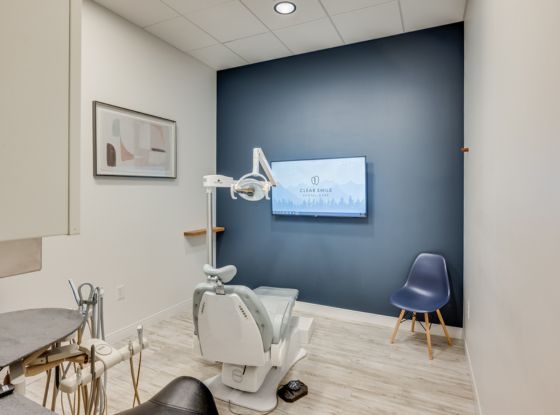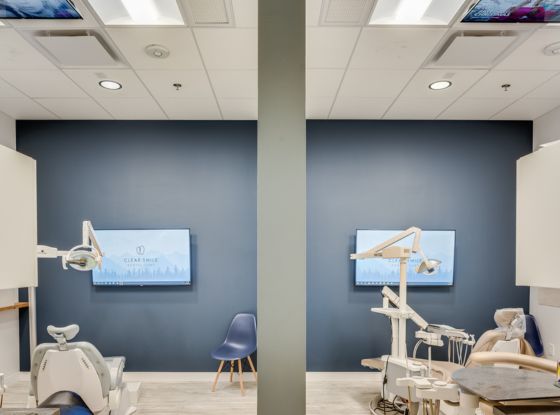The Role of Restorative Dentistry in Oral Health

The Role of Restorative Dentistry in Oral Health at Clear Smile Dental Care
Oral health not only keeps your smile bright but also impacts your overall well-being. Restorative dentistry repairs damaged teeth, restores function, and improves your quality of life. At Clear Smile Dental Care, we offer top restorative treatments in Highlands Ranch, CO, for issues ranging from cavities to severe tooth damage. Here’s an in-depth look at the role of restorative dentistry in maintaining optimal oral health.
What is Restorative Dentistry?
Restorative dentistry involves various procedures aimed at repairing or replacing damaged or lost teeth. Whether due to decay, trauma, or aging, restorative treatments can restore the health, function, and aesthetics of your teeth. Some of the most common restorative procedures include fillings, crowns, bridges, dentures, and dental implants. These treatments enhance your smile’s appearance and help your teeth function properly for chewing, speaking, and smiling.
The Importance of Restorative Dentistry
Restorative dentistry is essential for multiple reasons, beyond simply fixing the appearance of your teeth. Here’s why it plays such an important role in your oral health:
Prevents Further Damage One of the most significant benefits of restorative dentistry is preventing further damage to your teeth. For example, if you have a cavity, placing a filling will prevent the decay from spreading and causing more damage. If a tooth chips or cracks, a crown protects it from further damage and preserves its integrity. By addressing dental issues early, restorative treatments can prevent more complex and costly procedures down the line.
Restores Functionality Missing or damaged teeth can significantly impact your ability to chew food properly, speak clearly, and maintain a healthy diet. Restorative dentistry helps restore the functionality of your teeth, ensuring you can eat and speak comfortably. Bridges, dentures, and implants replace lost teeth, restoring a functional smile.
Improves Aesthetics People often see a beautiful smile as a sign of health and confidence. Restorative dental treatments improve the appearance of your teeth, whether you’re dealing with discoloration, chips, cracks, or missing teeth. Veneers, crowns, and implants can transform your smile, boosting your confidence.
Preserves Bone Health Missing teeth can lead to bone loss in the jaw, which can affect the overall structure of your face and mouth. This bone loss can alter your bite, leading to problems with your remaining teeth. Dental implants mimic natural teeth, stimulate bone growth, and prevent jawbone loss.
Reduces the Risk of Oral Health Problems Untreated dental problems can lead to more severe oral health issues, such as gum disease, tooth loss, and even infections that can spread to other parts of the body. Restorative dentistry helps prevent these issues by addressing problems as soon as they arise, reducing the risk of long-term complications.
Common Restorative Dental Treatments
Fillings Fillings are one of the most common restorative treatments for cavities. Your dentist removes the decay and fills the tooth with durable materials like composite resin, amalgam, or porcelain. This helps restore the tooth’s shape, function, and strength.
Crowns Dentists often use crowns to restore severely damaged or decayed teeth. A crown is a cap that covers the entire tooth, providing strength and improving its appearance. Dentists create crowns from porcelain, metal, or a combination to match your teeth’s color and function.
Bridges A dental bridge is a solution for replacing one or more missing teeth. A bridge consists of artificial teeth anchored by crowns on the adjacent healthy teeth. Bridges restore both the function and appearance of your smile, filling in the gap left by missing teeth.
Dental Implants Dental implants are a permanent solution for missing teeth.
A dentist places a titanium post in the jawbone to replace a missing tooth root with an implant. Once the implant integrates with the bone, your dentist places a crown on top to complete the restoration.
Dentures For those with multiple missing teeth, dentures provide a removable solution. Dentures can be partial or full, depending on the number of teeth missing, and they help restore both function and aesthetics. Modern dentures are comfortable, natural-looking, and can significantly improve your quality of life.
Why Choose Clear Smile Dental Care?
At Clear Smile Dental Care, we provide high-quality restorative dentistry treatments tailored to your specific needs. As the best dentist in Highlands Ranch, CO, we take a personalized approach to ensure that every patient receives the care and attention they deserve. Whether you need a filling, crown, or dental implant, our team will work closely with you to determine the most effective solution for your oral health needs.
Contact Us
Restorative dentistry is an essential part of maintaining and improving oral health. It not only addresses the immediate issues of tooth decay or damage but also helps prevent future complications, restores functionality, and enhances your smile. If you are experiencing dental issues or simply want to learn more about how restorative dentistry can benefit you, contact Clear Smile Dental Care today. Our team is here to help you achieve a healthier, more beautiful smile for years to come.








